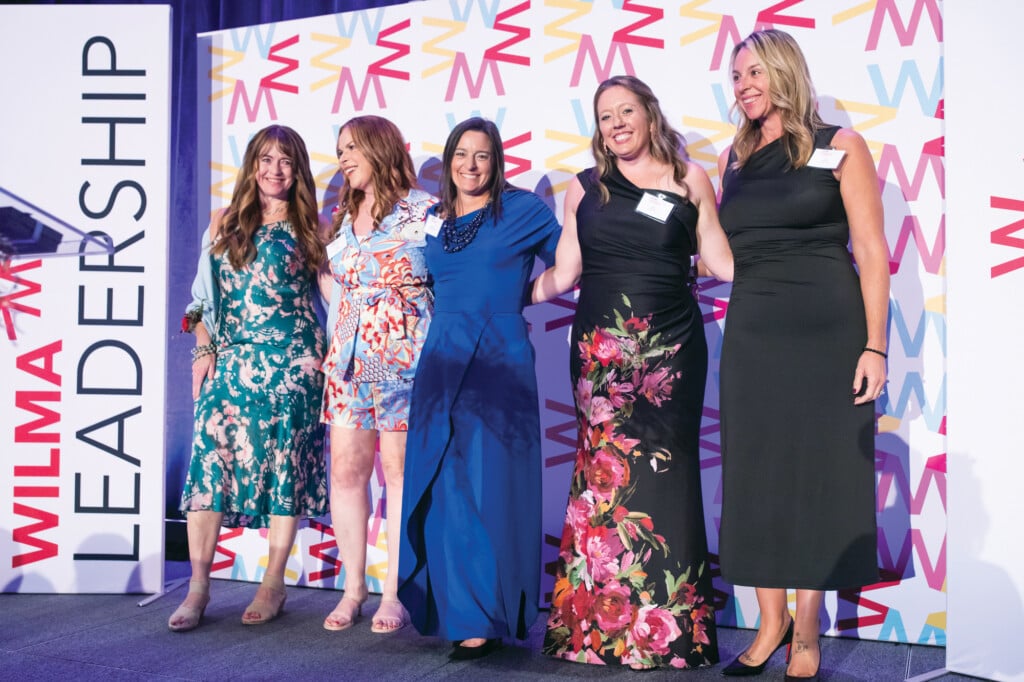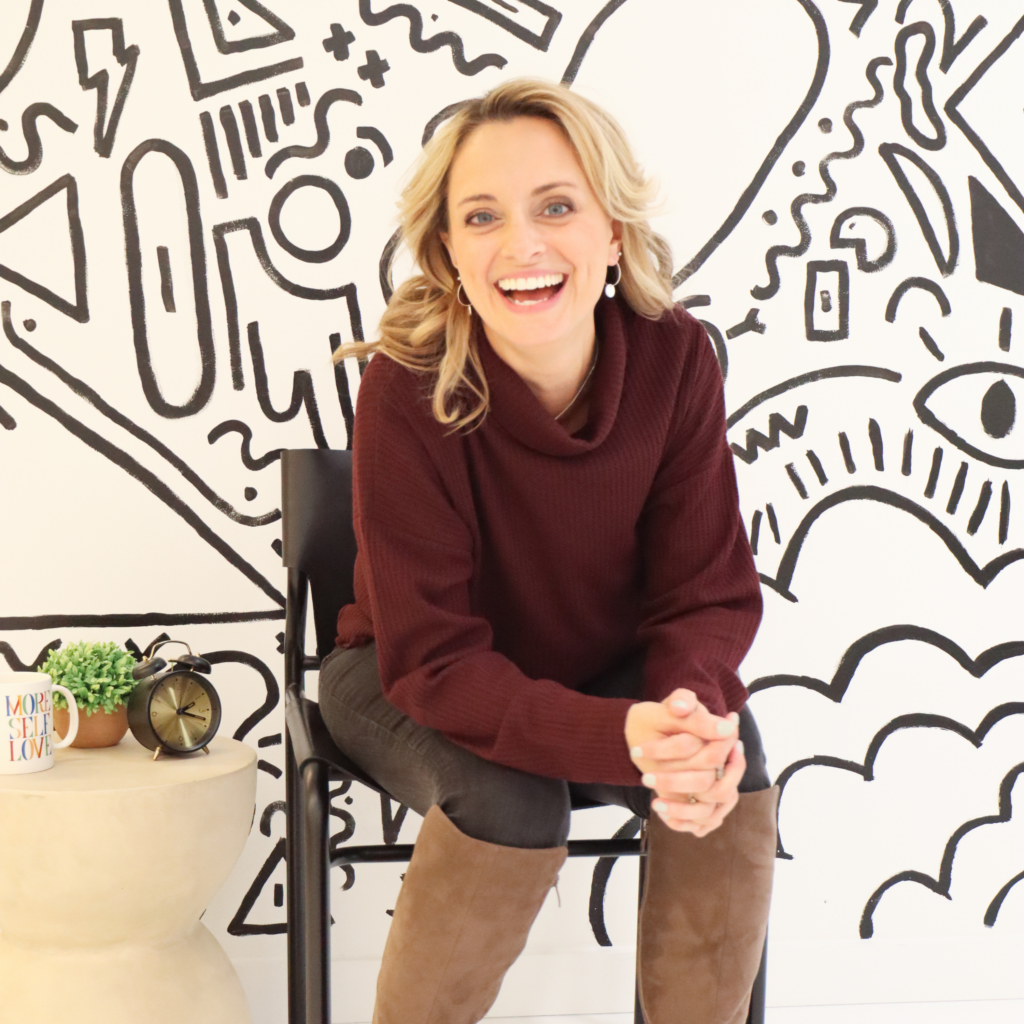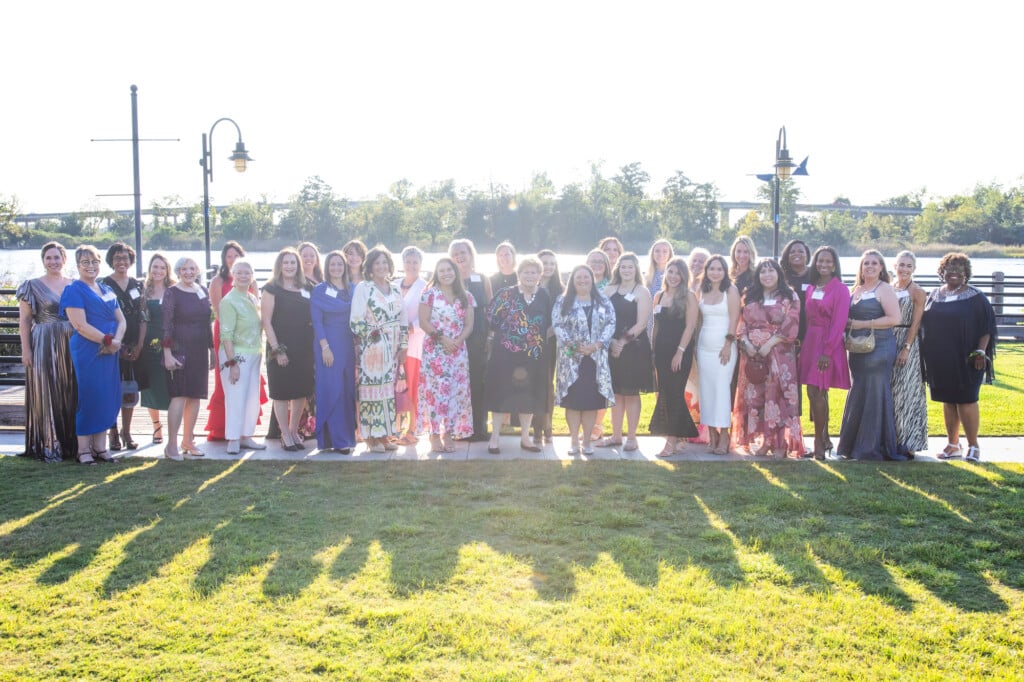Steward of the Sea
Surfrider Foundation chairwoman works to protect and preserve
 Amid the many currents of her life, KENI RIENKS has always felt the tug of the sea. A native of northern Illinois, she came coastward to attend the University of North Carolina Wilmington, where she majored in environmental studies and surfed when she could.
Amid the many currents of her life, KENI RIENKS has always felt the tug of the sea. A native of northern Illinois, she came coastward to attend the University of North Carolina Wilmington, where she majored in environmental studies and surfed when she could.
Several careers later, Rienks made her way back to Wilmington in 2014.
“I wanted to raise my kids by the ocean, and a great job at Cape Fear Academy opened up,” she says.
That “great job” involves teaching upper-level courses in environmental science, research writing, and presentation. When the school wanted to add a physics class for the less-math-inclined, she helped develop a course in coastal physics and engineering.
 “It’s more communication-heavy, solving problems in our area, being a project manager,” she explains. “As opposed to doing traditional math calculations, (students) analyze data. They get exposure to basic concepts and skills; real-world applications of physics concepts.”
“It’s more communication-heavy, solving problems in our area, being a project manager,” she explains. “As opposed to doing traditional math calculations, (students) analyze data. They get exposure to basic concepts and skills; real-world applications of physics concepts.”
Rienks’ concern for the coastal environment flows out of the classroom and into her active involvement with the Cape Fear Chapter of the Surfrider Foundation, whose primary goal is to protect and restore the area’s nearshore and beaches.
“I got involved with the Surfrider Foundation right away when I moved to Wilmington,” she says. “I was involved with ecological restoration and a food co-op in my former community, and took away from that the gratification of being part of something at the grassroots level. I had this interest in and passion for the ocean, I was drawn to environmental organizations, and I knew about Surfrider.”
Rienks now serves as the chapter’s chairwoman, working with an 11-person executive board that works day-to-day to power the organization. Core groups of volunteers fuel the chapter’s initiatives. It’s not just Cape Fear residents who work on local projects: some of the chapter’s volunteers come from the Triangle area. Charlotte has its own Surfrider Foundation chapter. A third chapter, based in the Outer Banks area, has struggled to rebound from the COVID-19 pandemic but is still active, Rienks says.
She likes the fact that Surfrider, founded in 1984 by surfers who wanted to promote a healthy ocean, addresses important environmental issues with its volunteer efforts. But she also appreciates the organization’s growing social initiative.
“When I got here, the social aspect was not as big as it is now, but now we want to make sure the beach is accessible for everybody,” she says. “I’m really proud of our work on that.”
For instance, people may find access difficult because of the cost of beach parking, or they may have mobility issues that make it difficult to navigate sand. Addressing the latter, Rienks says the organization is looking into beach mats, currently in place at some access points but not all. What would it take, she asks, to ensure that mats welcomed people in wheelchairs at every beach access point?
Right now, the chapter can count three successful initiatives among its accomplishments to date.
One involves monitoring water quality.
“Our Bluewater Task Force are volunteers who go out to beaches, get water samples and drop them off at the UNCW lab, and then read and report the findings,” Rienks says. “We’re almost a year into that and have a good relationship with UNCW’s marine science department.”
 The second is beach cleanups and plastics elimination.
The second is beach cleanups and plastics elimination.
“The coordinator of this initiative has done a great job the past two years and is creating initiatives to get volunteers out there,” she says, adding that Surfrider’s Clean Wave Tour alternates cleanups monthly, alternating between Carolina Beach and Wrightsville Beach. Topsail Beach holds two-to-three such trash pickups per month.
“We’ve got 100 to 200 people out doing cleanups,” Rienks says. “In the last year Surfrider’s Cape Fear Chapter was the most successful in terms of the pounds of trash collected and the number of cleanups in all of the Southeastern U.S.”
A third initiative looks at both the joy of water and the need for water safety.
“We are in year three of our All in the Water project, partnering with NC Swim,” Rienks says. “We offer several weeks of swim lessons for people in our community who have never been in the ocean. Kids graduate from there into Eco Camp: they go kayaking, get more comfortable with being in the water. Then they graduate into surf lessons.”
Right now, Surfrider Cape Fear is planning for its May 4 All in the Water fundraiser, enabling the program to continue.
“This program takes the most money and power on the ground,” Rienks says.
It’s also the most satisfying, she adds, citing a 21-year-old program graduate who, now a surfer and Red Cross-certified, is leading the camp.
“You see the progress of these young people enjoying the water,” she says.
Rienks believes her life experience has benefited both her work in the classroom and her leadership of Surfrider. She’s also grateful that she stepped into a healthy organization.
“I had some really great predecessors and teammates on the (Surfrider) board,” she says. “The people I’m with now and the people who came before me have been such an amazing influence: getting the chapter to where it is and getting me to where I am.”
To view more of photographer Daria Amato’s work, go to dariaphoto.com
Want more WILMA? Click here to sign up for our WILMA newsletters and announcements.



